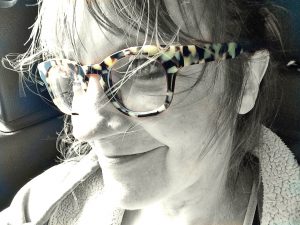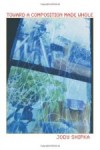
Areas of Interest: Rhetoric and Composition, Multimodal Discourse, Activity Theory, and Play Theory
Contact Information
Email: shipka@umbc.edu
Office: PAHB 301
Office Number: 410-455-2019
Education
Ph.D. in English with a Specializing in Writing Studies, University of Illinois, Urbana-Champaign
M.A. in English, University of Illinois, Urbana-Champaign
B.A. in English, Loyola University, Chicago (Summa Cum Laude)
Biography
Jody Shipka, Associate Professor of English, is teaching courses in the Communication and Technology Track. Her research and teaching interests include multimodal discourse, digital rhetorics, play theory, materiality, and food studies.
Shipka is the author of Toward a Composition Made Whole and the editor of Play! A Collection of Toy Camera Photographs. Her work has appeared in College Composition and Communication, College English, Computers and Composition, Enculturation, Itineration, Kairos, Text and Talk, and a number of edited collections, including Writing Selves/Writing Societies, Exploring Semiotic Remediation as Discourse Practice, Multimodal Literacies and Emerging Genres in Student Compositions, First-Year Composition: From Theory to Practice, Provocations: Reconstructing the Archive, and Assembling Composition. She serves on the editorial board for a number of book presses and series including Writing Research, Pedagogy, and Policy; Studies in Writing and Rhetoric; Computers and Composition Digital Press; and The Electric Press. She is also the Special Topics Editor for the journal Composition Forum.
She is currently working on a book-length project titled To Honor, Rival and Revise: On the Process of Composing Other People’s Lives. Here, Dr. Shipka draws on theories of remediation, multimodality, and embodiment to examine a diverse assortment of “memory objects,” such as vintage 8mm home movies, scrapbooks, photo albums, travel diaries, and other ephemera found at flea markets, yard sales, and antique stores. The project explores ways that these historically marginalized artifacts might be de- and re-composed in ways that allow us to imagine new potentials for conceiving of archives, authorship, agency, as well as the complex relationship between the living and the dead, between humans and nonhumans.
Representative Publications
- “To Gather, Assemble and Display: Composition as [re]Collection.” Assembling Composition. Eds. Kathleen Blake Yancey and Stephen McElroy. Urbana: NCTE, 143-160.
- “The Things they Left Behind” and “The Making of the Things they Left Behind.” Berry, Patrick W., Gail E. Hawisher, and Cynthia L. Selfe, eds. Provocations: Reconstructing the Archive, featuring the work of Erin R. Anderson, Trisha N. Campbell, Alexander Hidalgo, and Jody Shipka. Logan, UT: Computers and Composition Digital P/Utah State UP, 2016. Web.
- “Quotidian Pin.” in “MLArcade: The Rhetoric of Pinball.” Ed. Geoffrey V. Carter. Itineration (Feb 2016). <http://tundra.csd.sc.edu/itineration/mlarcade>
- “Transmodality in/and Processes of Making: Changing Dispositions and Practice.” College English 78.3 (Jan 2016): 250-257.
- “Beyond Text and Talk: A Multimodal Approach to First-Year Composition.” First-Year Composition: From Theory to Practice. Eds. Deborah Teague and Ron Lunsford. SC: Parlor P, 2013.
- “Including, But Not Limited to, the Digital: Composing Multimodal Texts.” Multimodal Literacies and Emerging Genres in Student Compositions. Eds. Tracey Bowen and Carl Whithaus. Pittsburgh: U of Pittsburgh P, 2013.
- “To Preserve, Digitize and Project: On the Process of Composing Other People’s Lives.” Enculturation 14 (2012). <http://enculturation.net/preserve-digitize-project>
- “On the Many Forms it Took Throughout: Engineering a Multipart, Multiple Site Rhetorical Event.” Exploring Semiotic Remediation as Discourse Practice. Eds. Paul Prior and Julie Hengst. NY: Palgrave, 2010: 52-76.
- “Negotiating Rhetorical, Material, Methodological, and Technological Difference: Evaluating Multimodal Designs.” College Composition and Communication 61.1 (Sept 2009): 343-366.
- “A Multimodal Task-based Framework for Composing.” College Composition and Communication 57.2 (Dec 2005): 277-306.
Books

Toward a Composition Made Whole
University of Pittsburgh Press, 2011
To many academics, composition still represents typewritten texts on 8.5” x 11” pages that follow rote argumentative guidelines. In Toward a Composition Made Whole, Jody Shipka views composition as an act of communication that can be expressed through any number of media and as a path to meaning-making. Her study offers an in-depth examination of multimodality via the processes, values, structures, and semiotic practices people employ every day to compose and communicate their thoughts.